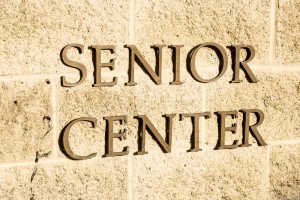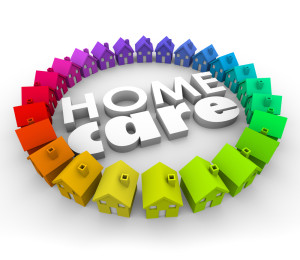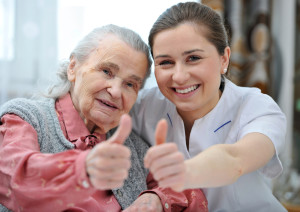Staying Home to Stay Safe – Using the Good, Old-Fashioned Phone Call
As “non-essential” workers conducting business from home, we are likely experiencing increased isolation. Yet we also feel sincere empathy and appreciation for those tirelessly working on the front lines of healthcare and human services, as well as those providing us with food and other essential supplies.
Others, in service industries like retail shops and restaurants, have been unavoidably laid off from their jobs. Financial hardship for them is fast becoming an unbearable worry.
Though this unexpected homebound downtime could provide a welcome opportunity to work on hobbies or complete chores around the house, it is only a very thin silver lining to an exponentially expanding ominous cloud.
Multitudes of people are suffering and dying during this global COVID-19 pandemic; we are in uncharted territory through no choice of our own.
For older, retired adults, a social lifeline may have been their local senior center; a place for visits and interactions with others. Whether it was an art class, a yoga-in-a-chair session, a Zumba class, or volunteer work they may have been doing, all of these in-person activities and gatherings have now come to a screeching halt.
Facilities that serve vulnerable populations – assisted living centers, nursing homes, and other retirement-style communities – have been faced with difficult, yet necessary decisions to deter the spread of COVID-19. Aside from MD, nursing, some home care and hospice staff, all visitors, including immediate family, have been banned. Most residents are required to stay sequestered in their respective rooms where meals are brought to them.
For those residents I have spoken with, they attempt to exercise within the confines of their room. They watch television, but intentionally limit their intake of the daily news. They read or listen to audiobooks. They try to stay connected to family and friends through phone calls. Occasionally, a resident may ask or a staff member may offer to help facilitate – at a safe distance, of course – a video call using FaceTime or a similar smartphone-based application.
Exceptional programs and services – exercise classes, lectures, informative webinars, concerts, online discussions, and support groups – are provided via remote conferencing tools like FaceTime and Zoom. These programs are facilitated by talented, compassionate, and concerned staff members from excellent agencies, organizations, and businesses. However, not all older adults are equipped to take advantage of these resources. Many do own and use computers, tablets, and smartphones. However, there is a significant number of those who do not possess or have an ability to use this modern technology.
So, what can we do about this? I propose we focus on and offer more contacts by telephone – the “good, old-fashioned phone call” – if you will. At this time of “Staying Home to Stay Safe”, the phone is a familiar, well-accepted device to the elderly. It usually does not present them with any confusion or trepidation. Again, if an older adult is savvy enough to utilize newer technology to accomplish connection and company with their family and circle of friends, well, that is great. Most importantly, though, we must recognize the technical capabilities of older individuals and then match them with the appropriate technology.
Many senior centers are having staff call each member to “check in” and many agencies are calling clients to do the same. As we know, effective counseling sessions can continue over the phone. Friends and family members of older adults are hopefully making a greater effort during these trying times to stop and take five minutes to “call in”.
In this world we live in of such advanced technology, do not underestimate the high value of the simple, good old-fashioned phone call!




Recent Comments